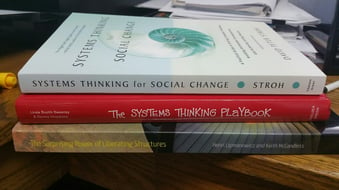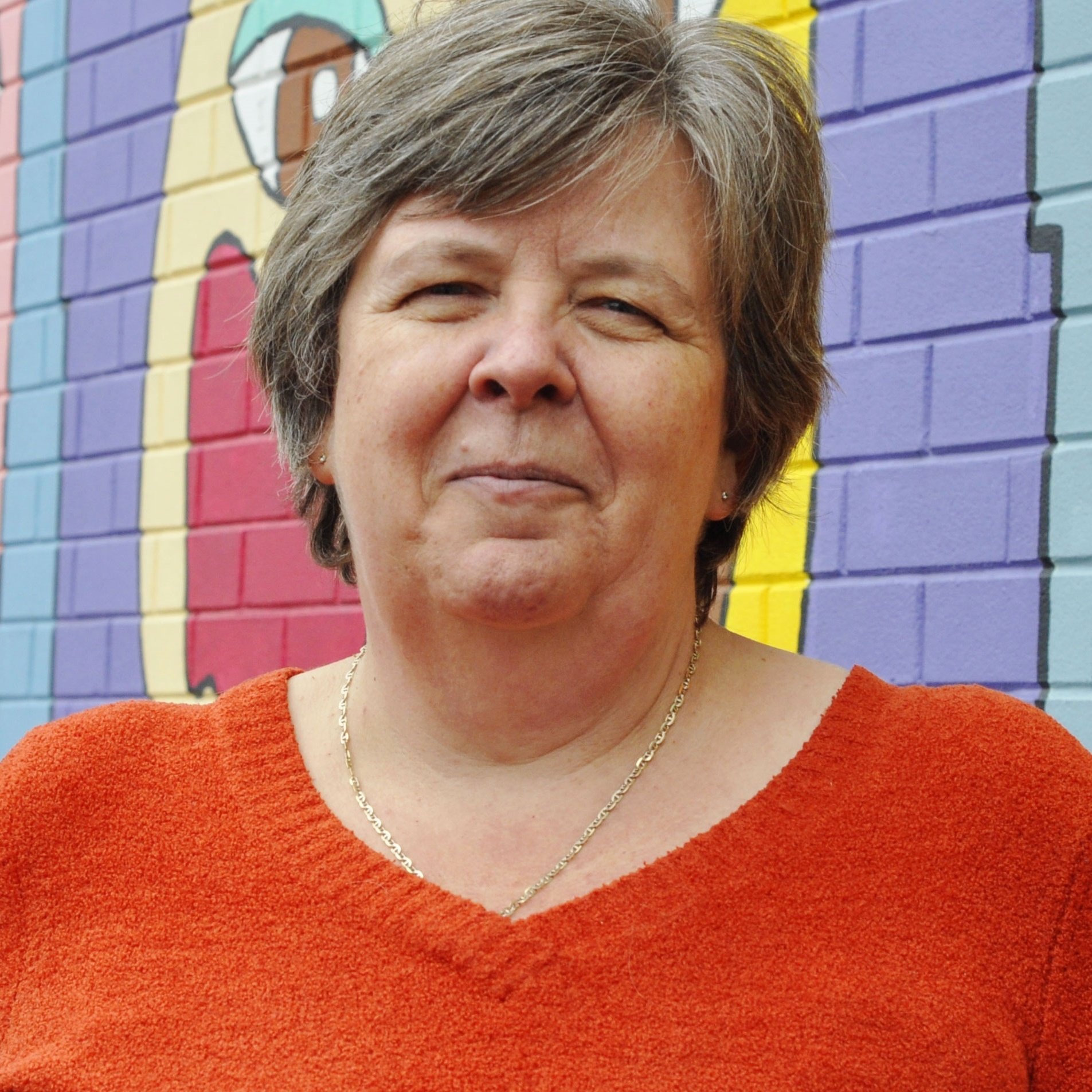Last week two books I had recently ordered arrived: Systems Thinking for Social Change by David Peter Stroh and The  Systems Thinking Playbook by Linda Booth Sweeney and Dennis Meadows. For at least the last 20 years of my career, I have been working in the complex space of trying to move, influence and change systems.
Systems Thinking Playbook by Linda Booth Sweeney and Dennis Meadows. For at least the last 20 years of my career, I have been working in the complex space of trying to move, influence and change systems.
With the adoption of the collective impact framework by so many community change practitioners, it seems that many of you are working in this space as well. David Peter Stroh’s book has a chapter devoted to collective impact from a systems change perspective. Throughout the book, he refers to practical examples of communities attempting to move the needle on educational outcomes, homelessness and community prosperity.
The Systems Thinking for Social Change approach embraces a four stage change process:
- Building a foundation for change which focuses on including key stakeholders, establishing common ground and building collaborative capacity;
- Building understanding through systems mapping which invites practitioners in undertaking systems interviews, organizing systems information, developing a preliminary systems analysis and balancing both the complexity of the system while also embracing its simplicity;
- Building support by bringing the system to life involves engaging people in their own analysis of the system, surfacing mental models and creating catalytic conversations; and,
- Making an explicit choice to move forward including understanding the payoffs of the existing system, defining and contrasting the case for change and the case for the status quo, creating both/and solutions, and making a choice or choices to influence the system.
Stroh provides practical advice to systems change practitioners throughout the book. In the chapter about becoming a systems thinker, Stroh suggests that having a systems orientation, learning by doing, and asking systems questions are key capacities for us to build. At Tamarack we call this having both the worm’s eye view and the bird’s eye view. Practitioners need to know what strategies are occurring within the system (worm’s eye) but also how the system as a whole is responding (bird’s eye).
The Systems Thinking Playbook also takes the theoretical construct of systems thinking into practical approaches providing practitioners with games to stretch and build learning and systems thinking capabilities. Sweeney and Meadows have crafted their systems thinking approaches for school curriculum but the exercises are equally useful for community change practitioners.
Some of the activities or games are quite simple and can be used to change perspectives or views on the system while other activities take practitioners deeper into the experience of system mapping by identifying causal loops around a particular issue or providing participants with skills around framing or re-framing issues. The Systems Thinking Playbook is a great companion resource to The Surprising Power of Liberating Structures by Henri Lipmanowicz and Keith McCandless which is a favourite of mine.
What does it take to become an adept systems thinker and community change influencer? I think it takes practice, resources and supports. These three books can help expand your capacities and build your mindset to see the problem or opportunity from a systems perspective.
Additional Resources:
- Systems Thinking for Social Change by David Peter Stroh
- Creative Learning Exchange – Systems Dynamics and Systems Thinking in K-12 Education website
- Liberating Structures website





